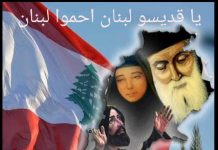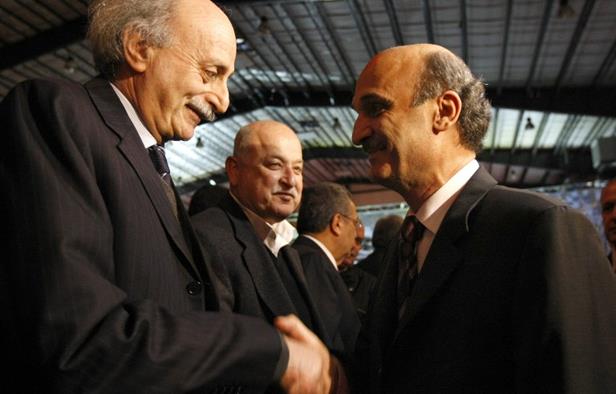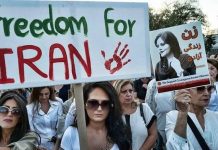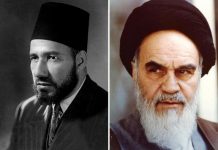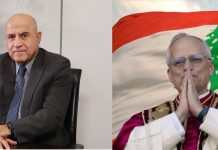It’s 1960 forever, The election law that simply never goes away
Michael Young/Now Lebanon/December 11/15
By most accounts the project to bring in Sleiman Franjieh as a compromise candidate for the presidency is not dead, despite indications to the contrary. For it to work, however, several issues must still be agreed between the parties, including which election law will govern future parliamentary elections.
According to some observers, the quiet consensus among the political class is to continue with the 1960 law, which establishes the qada, or small district, as the electoral constituency, albeit with some modifications in certain areas. This has been opposed by the Christian parties, some of which have called for a system of proportional representation.
Parliament has established an election committee to examine various alternative laws, but few doubt that this is an exercise in futility. Any law that is accepted will need to have the support of the major political forces in parliament. And for better or worse the law that satisfies virtually all the large blocs, because it consolidates their hold on power, is the 1960 law.
The 1960 law effectively grants Hezbollah, Saad Hariri’s Future Movement, Michel Aoun, Nabih Berri, and Walid Jumblatt the ability to support winning electoral lists in the areas they control. It also allows Hezbollah to give Aoun decisive support through its Shiite electorate in Baabda, Jbeil, and Jezzine. The alliance with Aoun is absolutely vital for the party, allowing it to advance its regional agenda and protect its military autonomy.
Hariri gains from the 1960 law as well, as it ensures he can win majorities in Beirut, West Bekaa, Sidon and, albeit through alliances, Tripoli. The same holds for Jumblatt in Aley and the Chouf, though the Druze leader has come to accept that running against Hezbollah and Aoun in Baabda is a losing proposition. Look for him to try remedying that situation in future elections.
The 1960 law has allowed Hezbollah to maintain a monopoly over the Shiite electorate, particularly in the South, Baabda, and Baalbek-Hermel, giving it the latitude to agree to a split in seats with Berri. The speaker has his own bloc, but the reality is that he will in no way oppose Hezbollah over issues the party determines to be in its interest.
Because the 1960 law is effectively the instrument allowing the political elite to maintain a headlock on the system, the chances that it will be changed are small. And yet many continue to insist the law must be changed, especially the smaller Christian parties such as the Lebanese Forces and the Kataeb Party, both of whom understand that it guarantees Aoun’s domination.
The Lebanese Forces and the Kataeb have succeeded in creating the impression among Christians that the 1960 law allows Muslim leaders to select a substantial number of Christian deputies. This effort to delegitimize the law has forced Aoun to go along publicly with Christian calls to replace it, but the reality is that he has no interest in seeing that effort succeed.
Samir Geagea’s anxiety was visible a few years ago when the Lebanese Forces backed what was known as the Orthodox proposal. This would have led to a law in which the members of each sect would vote only for candidates from their own sect. While it would have ended any pretense that Lebanon is a fairly unified country, Geagea’s calculation was that he would have been able to secure a much larger bloc in parliament through such a law. A return to the 1960 law represents a threat to him, and he might only accept a return to the law if he were guaranteed a large number of seats on the lists of Saad Hariri.
Perhaps that’s how we should understand Geagea’s reaction to the Franjieh project. Before giving his approval, the Lebanese Forces leader wants to receive assurances in exchange for a green light. He has set his red line: If Franjieh is approved over his head, Geagea will back Aoun for the presidency, forcing Berri to vote for him as well. The Franjieh option will die.
Until now, however, Geagea has avoided taking such a path, and on Thursday the party’s media officer, Melhem Riachi, speaking to Future Television, kept open the possibility that the Lebanese Forces might adopt a different attitude toward Franjieh. This suggests that Geagea is preparing for some form of bargaining, and the election law will be part of it. If the 1960 law is inevitable, he will look for meaningful compensation.
Election laws are the backbone of the Lebanese governance system, because they determine whether someone survives politically or not. In that sense they are considerably more important than who becomes president. If the Franjieh initiative is provoking so many waves, it is partly because the political forces are looking beyond it to see what’s in it for them.
Michael Young is opinion editor of The Daily Star newspaper. He tweets @BeirutCalling.













